*DING*
An unread message pops into the recruiter's inbox – New Application Received.
She clicks on the email and opens up your resume. What happens next?
The recruiter is going to spend 6 – 10 seconds scanning your resume with one goal in mind: to determine whether your application deserves a closer look or if it belongs in the trash.
How is she going to determine if you're a better fit than the hundreds of other applications she received for the role?
The skills on your resume.
When it comes to that first impression, the one that determines your resume's fate, the skills listed on your resume are absolutely critical to beating the competition and landing the interview. The problem is, most advice on crafting your resume skills is outdated and ineffective.
All the articles pitching you buzzwords and phrases to add to your resume might have worked 5 to 10 years ago, but people caught on and now everyone's resume skill section looks exactly the same — which is actually good news for us.
If you're reading this article, you're getting the first look at a highly effective strategy for crafting your skills that will make your resume completely outshine the competition (because no one else is doing this). You're going to learn:
- Why your resume skills section matters
- How to read the hiring manager's mind & identify the exact skills they're looking for
- A new way to list your skills that will skyrocket your interview rate
- A trick for placing your skills section so it gets noticed
How do I know this stuff works?
I personally used it to land jobs at Google, Microsoft, and Twitter without any connections or traditional experience in the tech space. On top of that, I've had thousands of resumes come across my desk here at Cultivated Culture where we've done extensive testing on every aspect of the resume from the skills section, to the objective, to the template itself.
The strategies you're about to learn have landed hundreds of people job offers at places like Google, Facebook, Apple, Amazon, Goldman Sachs, Deloitte, Sequoia Capital, ESPN, and more.
When you're done with this post, you can use everything you learned to create an awesome resume using my free Resume Builder with proven templates that actually get results:
Why Your Resume Skills Matter In 2021
A common misconception you'll find amongst job seekers and other career blogs is that you simply grab a “skill” from the job description, find some relevant jargon like “Team Player” to drop in, and — voila! — the interviews start pouring in.
That may have worked in the past but we're living in a new era. It's not that simple anymore.
Yes, the right language is critically important (and we're going to cover that in more detail) but if you're just grabbing words and phrases that sound nice from posts like 30+ Best Skills To Put On Your Resume, you're going to end up sounding exactly like every other job seeker.
You don't want to be another “quick learner with a passion for collaborating with others to solve problems” because that really doesn't tell your employer anything new. They've already seen a million of those come across their desk.
So how do we position our resume skills in 2021 to stand out from the crowd? It comes down to two simple strategies:
Resume Skill Strategies
Strategy #1 – We're going to use a few techniques that allow us to anticipate the exact skills the recruiter and hiring manager are specifically looking for in the resumes they read.
Strategy #2 – We're not just going to tell employers about our skills – we're going to show them. We'll leverage updates in the company's own hiring process and the technology that's available to us to prove out our value before we ever set foot in the same room or hop on the phone with the employer.
While everyone else is injecting buzzwords into plain text PDFs, we'll be paying close attention to the way our sentences grab the reader and then offer them tangible proof that our skills go above and beyond what's expected for this role (even if you don't feel 100% qualified, I'll show you how to work around that in just a minute).
Steal The Resume That Got Me Hired At Google, Microsoft, & Twitter (Get It For Free!)
>> Click here to get free, instant access to the resume template & bonuses <<
What Skills Should You Put On Your Resume To Make It Pop?
Hear that?
That's the sound of the content police coming to get me for being hypocritical because this section includes some of those fancy buzzwords I mentioned earlier. Bear with me though, I promise it's much more than that. I'm going to show you:
- How to read your employers mind and include the exact skills they are hoping to find on your resume for any given role
- The right wording for each of these skills (with examples from different industries and categories)
- How to work these skills into your resume bullets so they JUMP off the page
We're not just stopping at buzzwords!
How To Identify The Exact Skills Your Employer Wants To See On Your Resume
You've probably heard that first impressions are everything. This is especially true for resumes!
The average hiring manager spends six seconds scanning your resume with one goal in mind – is this person qualified? Imagine how happy they'll be when they see the exact words, phrases, and skills they had in mind right there on your resume.
Here are 4 steps you can use to identify those words so that you can make sure they stand out in your resume:
Step #1: Go to the online posting for the role that you want. In this case, we'll use a job description from Amazon for a Program Manager role:
Step #2: Highlight all of the text pertaining to the role and copy it to a Word document.
Step 3: Head over to ResyMatch.io and paste the job description into the box on the right. On the left, you can upload your resume if you have one, or just paste in some sample text.
Step #4: Hit scan!
ResyMatch will scan your target job description and show you which skills are emphasized in the job description:
The cool part about this tool is that it breaks out the Hard Skills and Soft Skills in the job description so you can easily differentiate!
You can also use ResyMatch to track your progress as you update your resume with the resume skills we'll be talking about throughout the rest of this article.
Pro Tip: Get Your Info Right From The Source
Leveraging job descriptions is a great way to understand what the company is looking for, but JDs are limited to the copy the hiring managers decide to add in. They typically don't include any nuances which could be the key to gaining an advantage and winning the job.
If you're ready to go above and beyond, you should try to find people who are already working in the role you want and reach out to them.
You can easily find these people by searching for Job Title + Company on LinkedIn. Then you can find their email using a tool like Mailscoop.io. Reach out and ask them for a quick call. Once you get on the phone you can chat with them about necessary skills, nuances of the role, and anything else prospective hires should be aware of. For a step-by-step walkthrough of finding contacts and building relationships, check out my article on How To Land A Job Without Applying Online!
List Of The Most Desired Skills For Your Resume (By Category)
When it comes to skills on your resume, there are two different types: hard skills and soft skills. The tactic above offers a great way to determine:
- A high level mix of hard and soft skills you'll need for that specific job
- The sub-categories of each skill set where you'll want to take a deeper dive
Let's start by talking through the difference between hard skills and soft skills:
What Are Hard Skills?
Hard skills are objective, teachable skills that you need to do a specific job. They can typically be learned in a classroom, through online courses, or by doing the job itself. They're also usually easy to measure and quantify. Here are 10 examples of hard skills to give you a better idea:
10 Examples Of Hard Skills For Your Resume
- Programming in C+
- Accounting
- Project Management
- Lead Generation
- Social Media Marketing
- Proficiency in [Foreign Language(s)]
- Copywriting
- Data Science & Analysis
- Adobe Photoshop
- Search Engine Optimization
See how each one of these skills are cut and dry? You either know how to program in C or you don't, and it's pretty easy to objectively test your skills.
Hard skills are what employers initially look for on your resume to see if you're qualified for the job. For example, if you're looking for a Graphic Design job that requires proficiency in Adobe Photoshop & Illustrator, the hiring manager is going to scan your resume to see if you've had experience with those tools.
Due to the complexity of most jobs today, you're likely going to need to weave multiple hard skills into your resume. I'll show you how to do that in just a second.
What Are Soft Skills?
Soft skills, typically referred to as “people skills,” are a blend of personality traits, social skills, and emotional intelligence (EQ). These are the skills companies look at to determine whether or not you're:
- A team player who works well with others
- Motivated to take on new challenges and grow as a person
- Leadership material, able to effectively manage others and bring them up
- Etc.
These skills are harder to learn and quantify, but they are just as important as your hard skills when it comes to winning the job offer. Here are 10 examples of soft skills:
10 Examples of Soft Skills For Your Resume
- Effective Communication
- Time Management
- Creativity/Innovation
- Ability To Work Well With Others
- Drive/Motivation
- Integrity
- Attitude
- Ability To Build Relationships
- Loyalty
- Problem Solving
Your soft skills are what hiring managers are going to seek out after your hard skills get you past the initial qualification scan. If you're able to effectively demonstrate your soft skills on your resume, you're going to get a huge boost over candidates who are only qualified for the objective stuff.
It's important to note that having concrete evidence of your skills, both hard and soft, is critical to getting hired. Anyone can say they're a “problem solver” or “proficient at Facebook Ads,” but real results speak for themselves. If you don't have any experience with the skills you need, start by checking out CoSchedule's guide on learning a new skill in 11 steps.
Steal The Resume That Got Me Hired At Google, Microsoft, & Twitter (Get It For Free!)
>> Click here to get free, instant access to the resume template & bonuses <<
How To List Skills On Your Resume (With A Modern Twist)
Traditionally, the resume skills section was a consolidation of all the hard skills you had in your arsenal (with the occasional soft skill like “leadership” thrown in). We'd group them all together in a long sentence and then relegate them to the bottom of our resume, never to been seen or heard from again. It looked a little something like this:
Boooooooooring!
What does this even tell the person reading your resume?
Ok, so you listed Excel as a skill. Does that mean you know how to manually sum up a row? Or can you build a data model that, say, quantifies the fundamental value of Ethereum (the cryptocurrency) like this guy did on Reddit:
That is a looong way from a vlookup! Courtesy of u/arsonbunny on r/Cryptocurrency
Or maybe social media catches the employer's eye. Do your skills consist of your daily use of the platforms to chat with friends, have you built an Instagram page that's racked up 30,000 followers in a small niche, or are you somewhere in between?
There's absolutely no way to tell! Which makes it incredibly hard for you to pass the eye test, let alone stand out. It's safe to say that this is by far the worst way to present your skills on your resume.
Ok, but what about those fancy charts people use?
The new trend of modern resumes has tried to take a step towards improving on the old school method.
These days, people are taking the same skills they listed above and adding a bit of design magic to them. They drop them into a very aesthetic, modern resume template and use some sort of chart to highlight just how good they are at each skill listed:
The problem is, these chart-style skill sections are completely subjective!
Going back to our Excel example, you might be the formula hot shot in your office. You help people with their vlookups and conditional formatting all day long! So you grade yourself as an 8/10 on your bar graph – that hiring manager would be crazy not to take you, right?
Little do you know, the person with the WORST Excel skills at your prospective company was the guy who built that Ethereum model! If you're an 8, what would he be…a 15/10? Uh oh…
These charts might look fancy but they do absolutely nothing to give your potential employer a concrete idea of how good you are at certain skills. Again, it's going to be tough to stand out that way.
At this point, you're probably saying OK Austin, so how exactly do I go about showcasing my skills if neither of those methods are viable options??
Here's How To Make The Skills On Your Resume Jump Off The Page
While I ragged on the modern bar graph design above, it's actually a decent starting point for grabbing the hiring managers attention. The charts are colorful and occupy a decent amount of real estate, which is definitely eye catching. Whether you put them on the bottom or the side of your resume is up to you.
Now we need to solve for the ambiguous value associated to the charts – if you're an 8/10 for Adobe Photoshop or a 9.5/10 on Javascript, what does that mean?
Today, most resumes are submitted in some sort of digital format (I always recommend PDF) which means we can leverage the ability to include rich media into those resumes. While some people's minds might have jumped to GIFs, videos, etc. we still need to account for the technology that might be parsing your resume. That technology isn't very good at reading rich media.
In my opinion, links are the best solution.
First, list the skill in question. Next, place your bar graph or whatever indicator you're using to evaluate the skill (this is optional). Now, below that, we want to focus on achievements by adding in a few bullets that link out to projects that speak to or prove out your ability for that skill. Let's take a look at a few examples of how to list skills on a resume:
Resume Skills Example #1: Full Stack Developer
Matthew Williams is a full stack developer out in Portland, OR. He does a great job of creating that modern valuation design for his skills:
HTML, CSS, and Javascript seem to be his strongest skills — but just how good are they? If you look on Matthew's website, he's got an entire portfolio of skills with the associated languages used to develop them. It looks like he coded up the site for ALS Never Surrender leveraging pure Javascript, which is a great barometer for the hiring manager to use.
His Ruby on Rails skills also seem to be fairly decent. If I check out that portfolio, it looks like he built Powur.com using a combination of Ruby and Angular. Another awesome showcase of exactly what 70% means to him.
Let's see what this might look like if Matthew worked these into the skills section of his resume:
Boom! Now anyone reading Matthew's resume on their computer can easily identify which full stack skills Matthew excels at and then go look at real world examples of that work. If the hiring manager likes what he sees on the ALS and Powur sites, Matthew is going to be light years ahead of the competition.
Now, let's take a look at another example of how to list skills on a resume from a different industry:
Resume Skills Example #2: Design / User Experience
Andrew Cardenas is a designer who created a site called Nerdcloud to showcase his projects. He meshes innovative ideas and creativity with some of the worlds biggest brands (most of the time he does it for fun). A few of his projects include:
- A turn-key Twitter tool that leverages contests to create a social chain reaction. His tech was leveraged by musical artists Lady Gaga and BOB.
- A Chrome extension that turns Gmail into a minimalist application that's easier to digest and navigate
- A “munch truck” idea for Seamless (the food delivery company) where customers could experience new food and restaurants outside of their delivery area
If you're from New York, you know this is an AWESOME idea. How can Andrew get it in front of the hiring manager who's reading his resume? By leveraging the same strategy as Matthew. Since Andrew is design focused, maybe he can even include a few of his mock ups on the resume itself? Those colors would definitely pop:
 Resume Skills Example #3: The “Universal” Template
Resume Skills Example #3: The “Universal” Template
By now you may be thinking that all of these look pretty cool, but what if you aren't a full stack wizard or graphic designer with a bunch of cool projects under your belt? How are you supposed to leverage this and know what skills to list on a resume? That's what this example is all about.
One of the most effective strategies I mandate for all of my students is the creation of a Value Validation Project. Validation Projects are deliverables that illustrate your value as a candidate by solving some sort of need for the company.
It could be providing solutions to a problem, ideas for improvement, customer feedback on a product, or a project you've worked on that solidifies your experience as it relates to the role (both Matthew and Andrew's projects from the previous examples could be a great value validation offering).
The good news is that you don't need a fancy project to illustrate your value (although it definitely helps). You can simply repackage past experiences and accomplishments, here are some examples for different skills:
Universal Resume Skills Template #1
Job Title: Account Management
Accomplishment: An initiative with a top tier agency aimed at increasing email signups for a client by selling in and implementing a new software featured your company rolled out. The initiative increased the client's email sign ups by 26% and increased monthly revenue by 34%.
Resume Skills Involved: Lead Generation, Conversion Optimization, Sales, Pitching, Upselling, Creativity, Innovation, Organization
Project Idea: Create a case study. Write down everything that happened from how you came up with the idea, how you pitched it, the client's baseline metrics, challenges you faced, how you implemented, and the results you got. Then take all of that content and use Canva's infographic templates to create a one sheet case study. Save it to a PDF and upload it to your Google Drive with share settings on public, then include the link in your resume!
Universal Resume Skills Template #2
Job Title: People Manager
Accomplishment: Feedback from the previous year's company poll showed that productivity was suffering due to lower team morale. The company grew rapidly and employees felt a lack of community at work, making it hard for them to learn and share knowledge. You decided to leverage a few tactics you found in an article about the Philadelphia 76ers culture. You allocated 15 minutes in every team meeting to have a team member present on any topic they wanted, and required that at least 3 people on the team ask questions. The next mid year pole showed a 273% increase in morale and a 5x bump in productivity.
Resume Skills Involved: Leadership, Creativity, Innovation, People Management
Project Idea: Write a blog post about the experience. Head over to Medium.com and chronicle your team's journey over those 8 months. Introduce the problem, talk about how you had the idea because you follow the NBA and read the article on the 76ers, then go into the individual presentations your team gave (include screenshots of slides, get testimonials from your employees!). Publish the piece on Medium and ask your employees to leave a comment if they feel up to it. Then link to your post in your resume skills section.
Universal Resume Skills Template #3
Job Title: Customer Service
Accomplishment: Identified inefficiencies in a process that caused delayed response times, bandwidth constraints due to poor communication, and impacted the department's bottom line.
Resume Skills Involved: Customer Service, Customer Experience, Process Optimization,
Resume Skills Project Idea: Create a slide deck. Open by highlighting the inefficiencies and the problems they were causing (use quantitative results!). Walk through the process you used to brainstorm solutions and how you implemented them. Discuss the challenges you faced and how you overcame them, how you got buy in from management, etc. Finally, showcase the results that your ideas created (again, quantitative results are king).
You don't need to be some rockstar to leverage this strategy. All you need to do is lean on your previous experience and package it up into something that's well designed, easy to digest, and clearly conveys the value you bring to the table!
Here's a look at what a portion of our resume skills section might look like for the Account Manager role in example #1.
(Pro Tip: It's a good idea to choose a bold color for the links to your value validation projects – I put the one below in bright red):
Steal The Resume That Got Me Hired At Google, Microsoft, & Twitter (Get It For Free!)
>> Click here to get free, instant access to the resume template & bonuses <<
Where Should You Put Skills On Your Resume?
Now that we know what skills to add to a resume and how to leverage them to prove out our value, the only thing left to do is drop them in the right place.
The good news is that this is the easiest part of the process. All we need to do is follow three simple rules:
- Place your resume skills section where it will be noticed, but won't interfere with the flow of your resume
- Use a visually appealing design to catch the hiring managers eye (remember, skills are the first thing they use to qualify you when they do their initial scan)
- Weave your resume skills into all of the other aspects of your resume (especially your resume objective and work experience).
Placement And Design Of Your Skills Section
For rules 1 and 2, I recommend placing your resume skills section on the bottom or in one of the margins of your resume. When it comes to design, the most important thing is that your skills are clearly stated and the links to your validation projects stand out. If you want to do bar graphs and charts on top of that, be my guest:
The placement in both of the examples above grabs attention, but doesn't interfere with the other sections of the resume. If you decide to place your skills in one of the margins, it's a good idea to add your contact info and social media profiles above or below it.
Weaving Your Skills Into Other Aspects Of Your Resume
It's important to note that the skills section of your resume isn't the only place you need to prove your worth.
Recruiters are spending their six seconds scanning for skills, but they may not always be scanning the skills section itself. That's why it's so important to include the skills you identified from the exercises above into the rest of your resume.
I always recommend leveraging a specific style of resume objective at the top of your resume as well as a specific format for your work experience, interests, and the other parts of your resume. That will create a cohesive message throughout.
Out With The Old, In With The New
We're currently living in the most competitive job market history has ever seen. It's time to ditch the old, outdated strategies that simply don't work anymore. In 2021, we need to go above and beyond to stand out from the sea of competition.
This article is the definitive guide to crafting your resume skills so that you grab the attention of the recruiter and win the job offer. If you need more resume help, check out these guides on:

















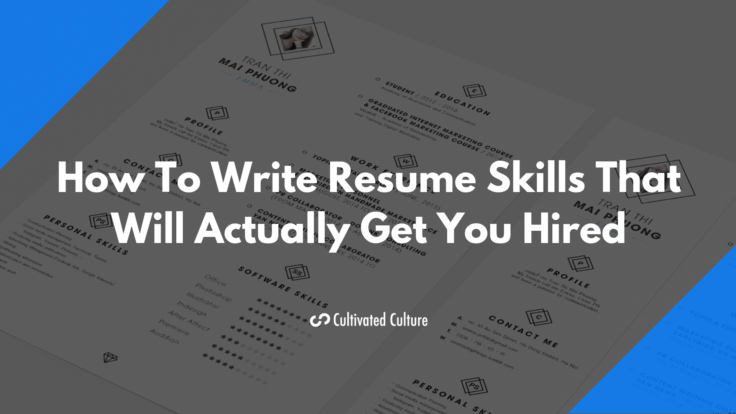
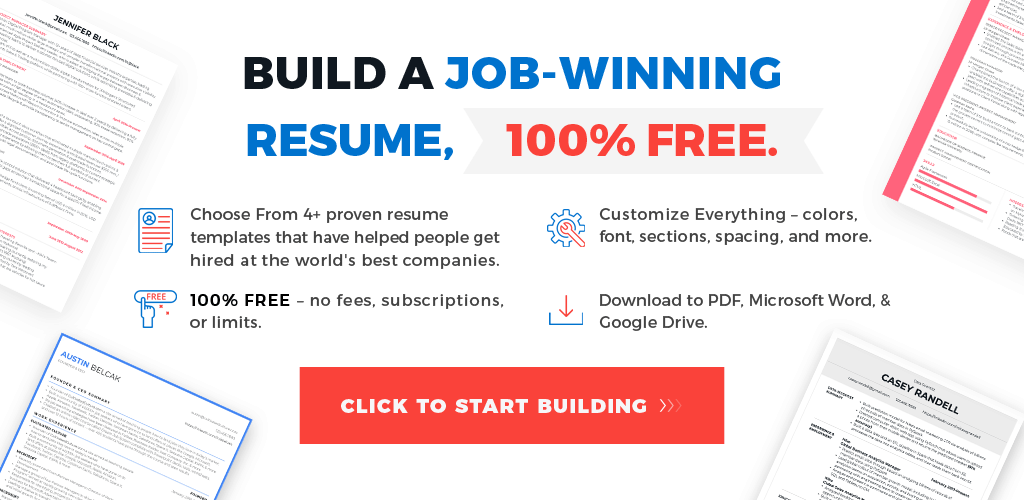
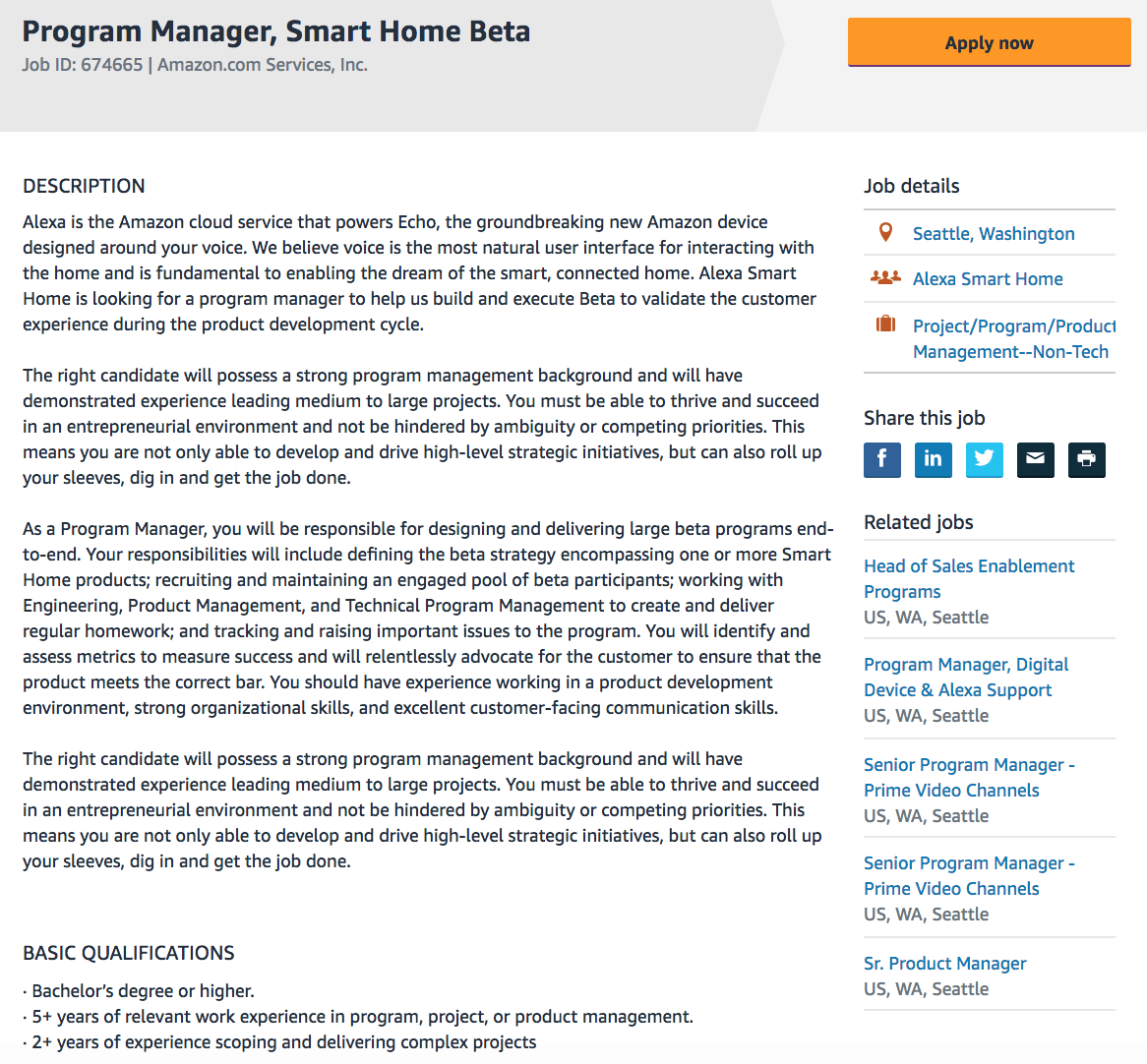
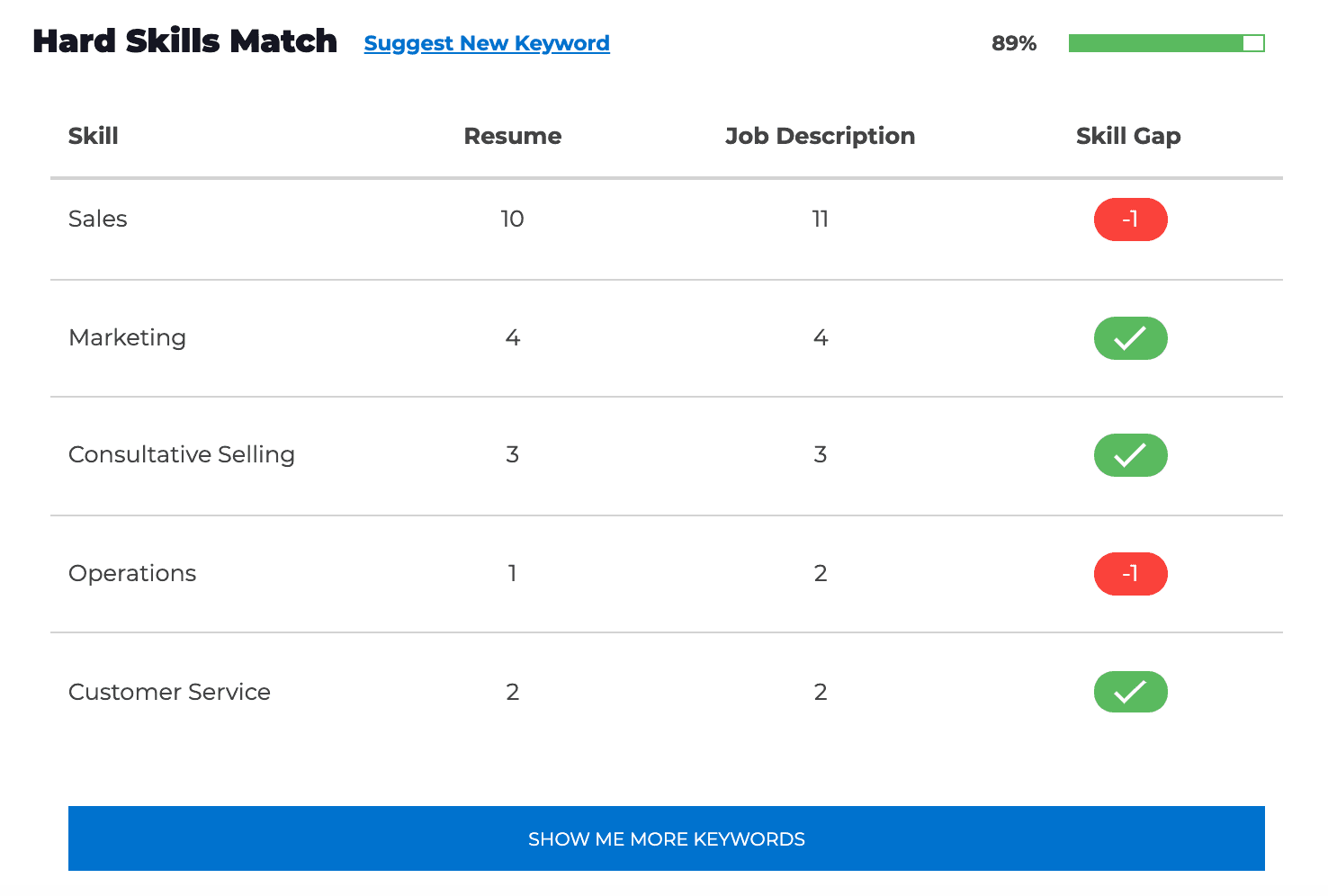

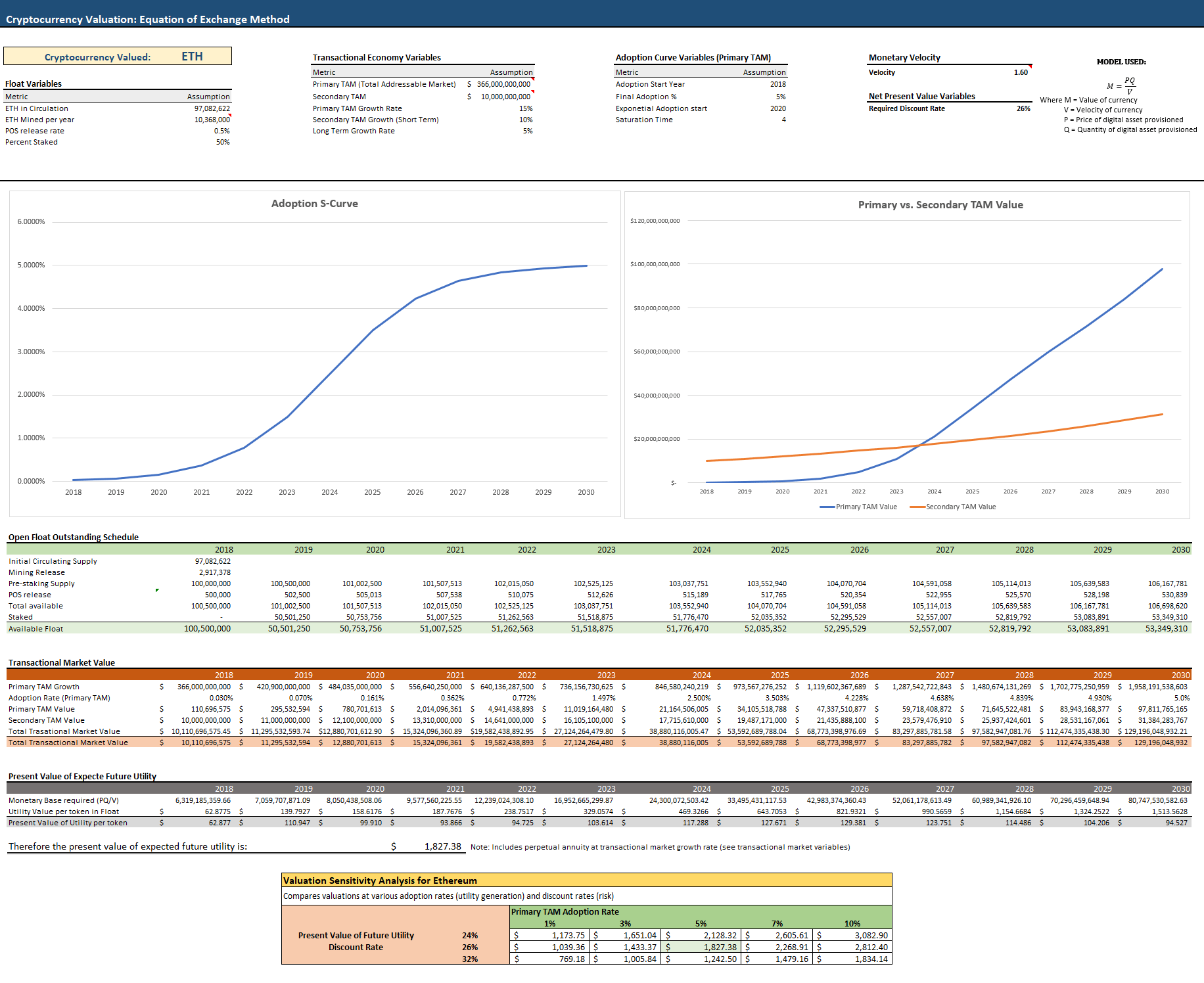
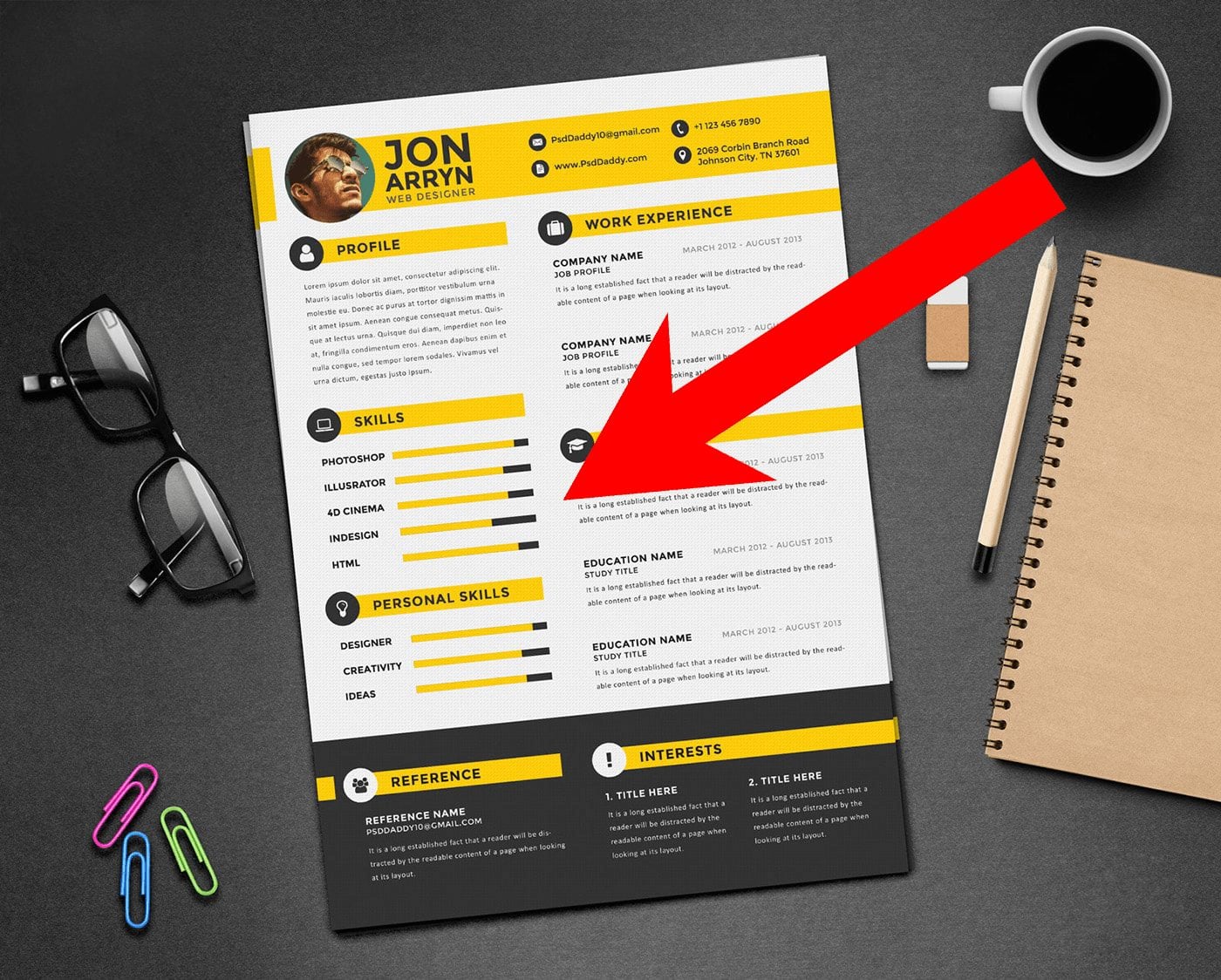
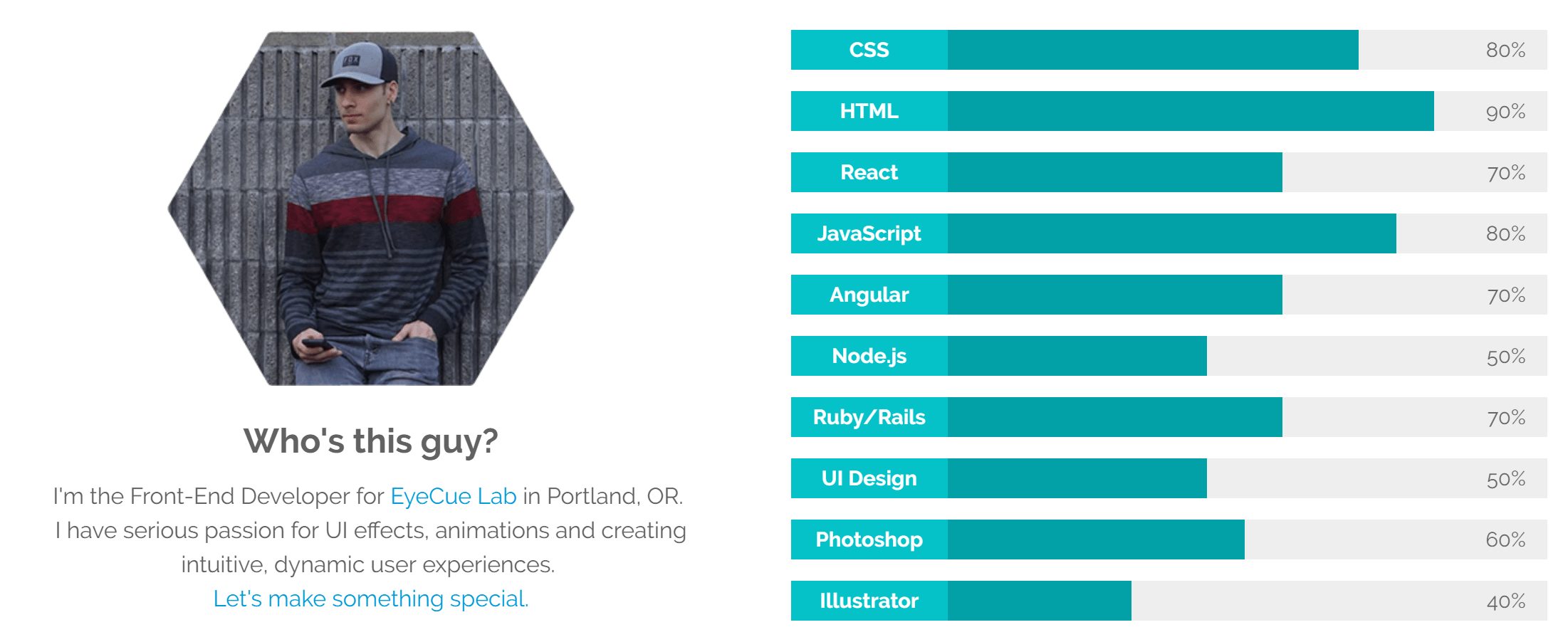
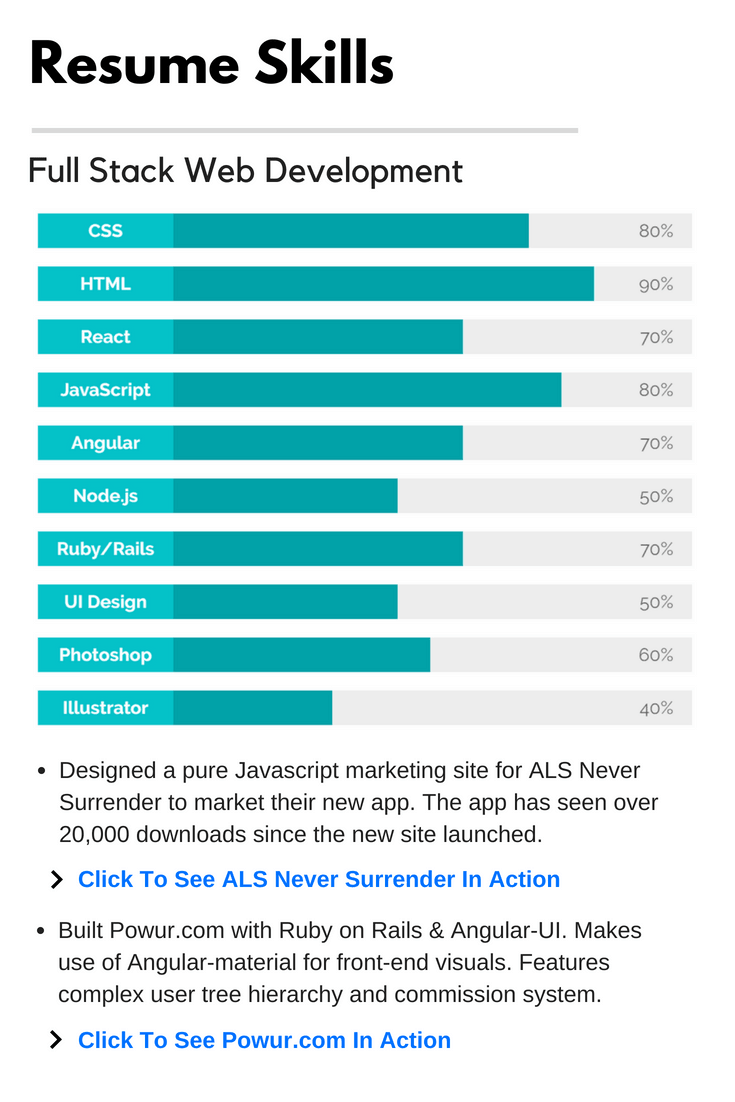
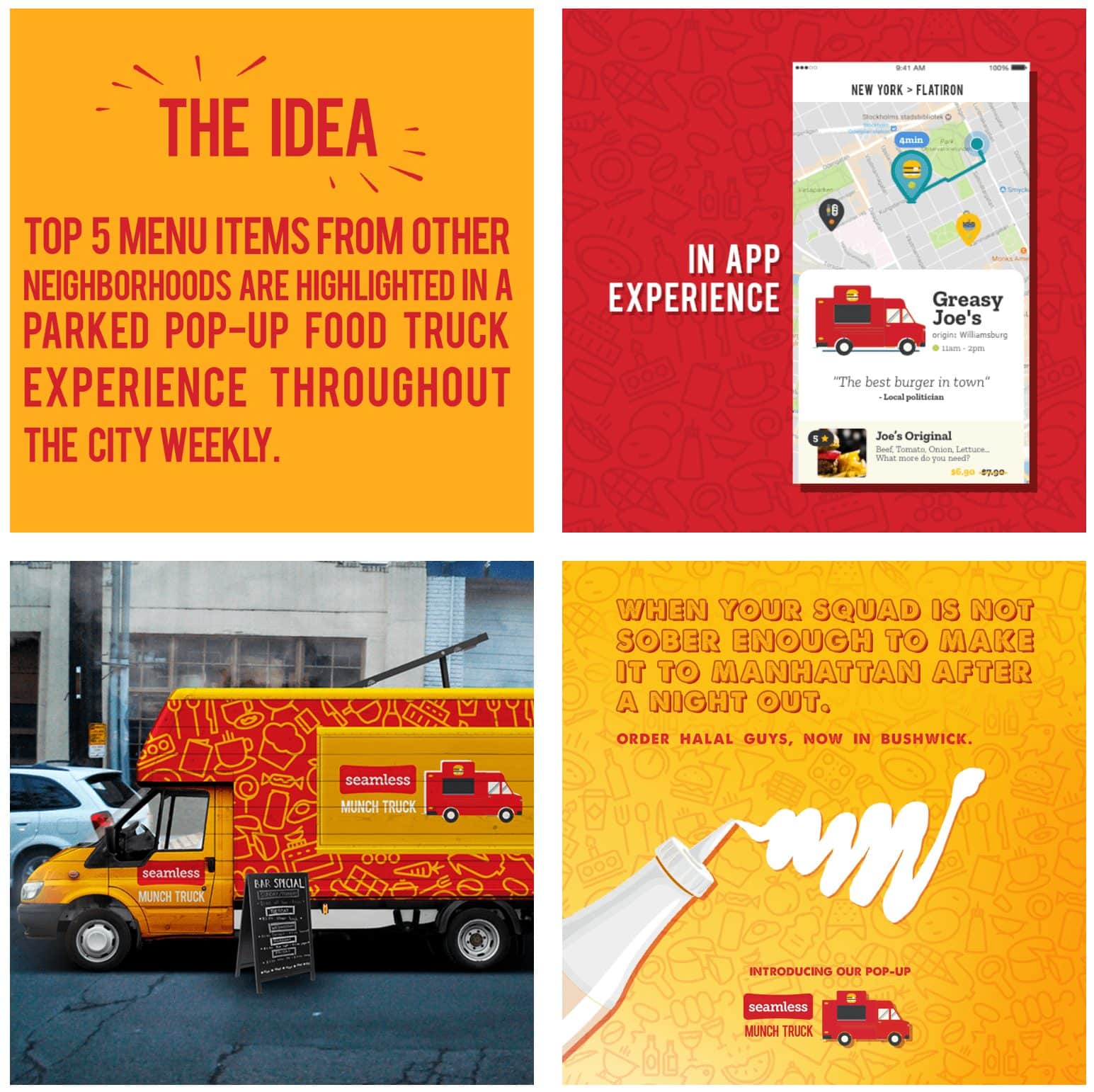
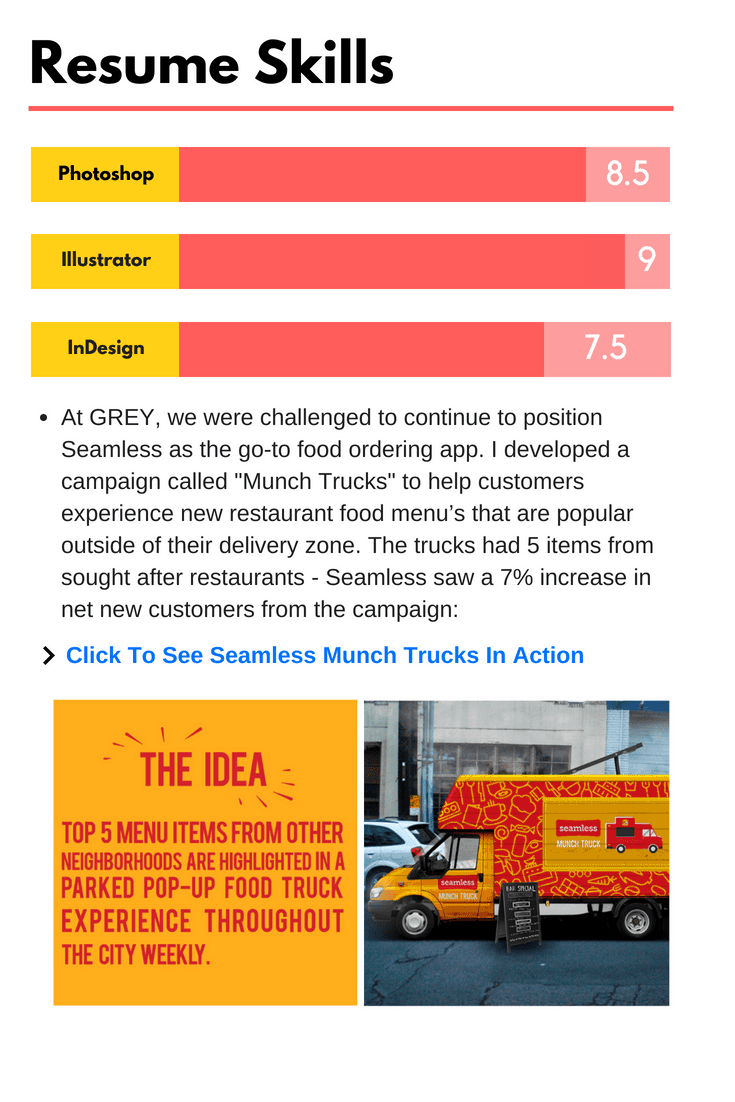 Resume Skills Example #3: The “Universal” Template
Resume Skills Example #3: The “Universal” Template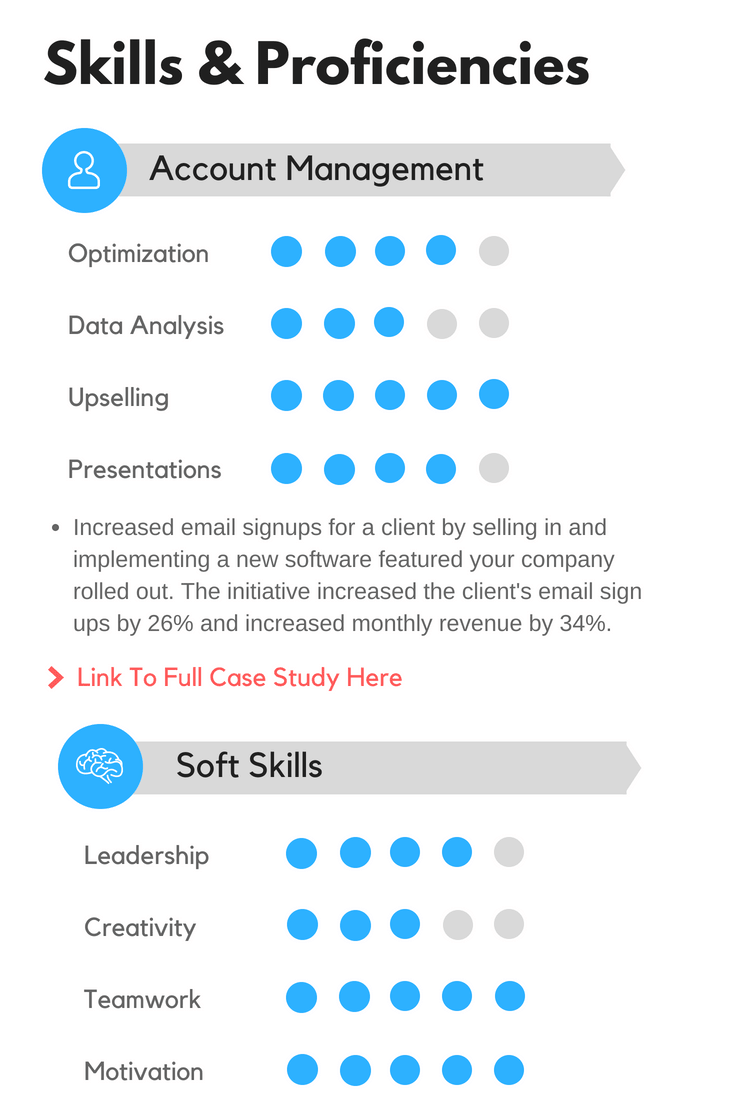
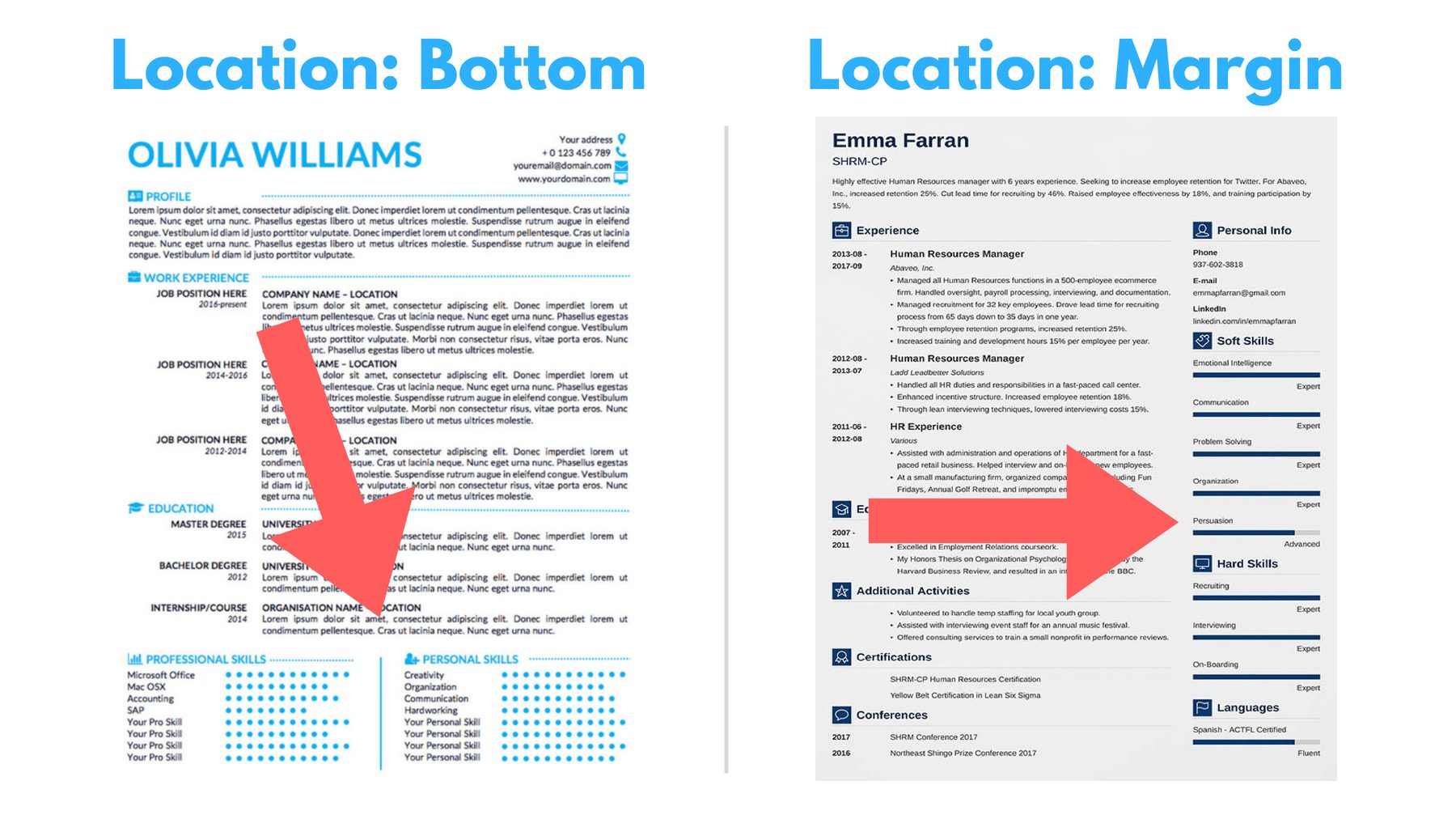


















I am writing my very first resume and it was a huge struggle to write it in a proper way.I was so confused as what all to mention in the resume, how to mention it in which format etc. Thanks for sharing these and helping to know the tips. Best article..!!
Right on Nasreeern! I’d definitely recommend checking out our resume builder too. It’s 100% free and will help you make sure that first resume is an awesome one!
This is my first time pay a visit at here and i am really pleassant to read
all at alone place.
Awesome Contoh, welcome!
thanks for sharing the good information.
You bet!
Would a template like the one you have at the end get through the ATS software?
I’ve had similar templates from word get all scrambled after uploading.
Yup! The templates are all Applicant Tracking System friendly – I built them that way so you wouldn’t run into any issues!
Cv’s are boring to write and read. I’m happy with my cv as it is but I may as well have copied everyone else’s out there because it just doesn’t stand out. The same key words friends have told me I must write but I’m just not getting my personality and true potential out there, thanks to this article I’ve found at 6am this morning my cv is getting a shake it up! Thank you Austin!
Amazing Jessica, I love it!!